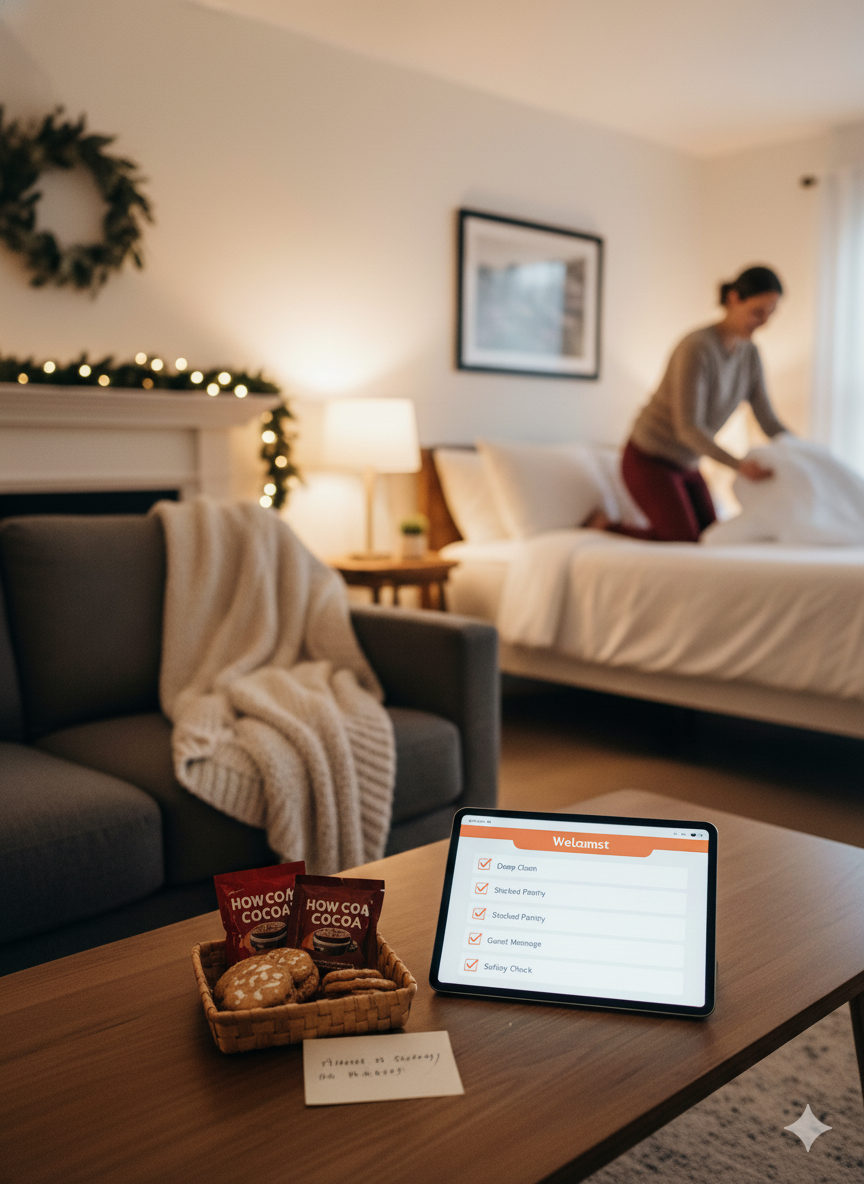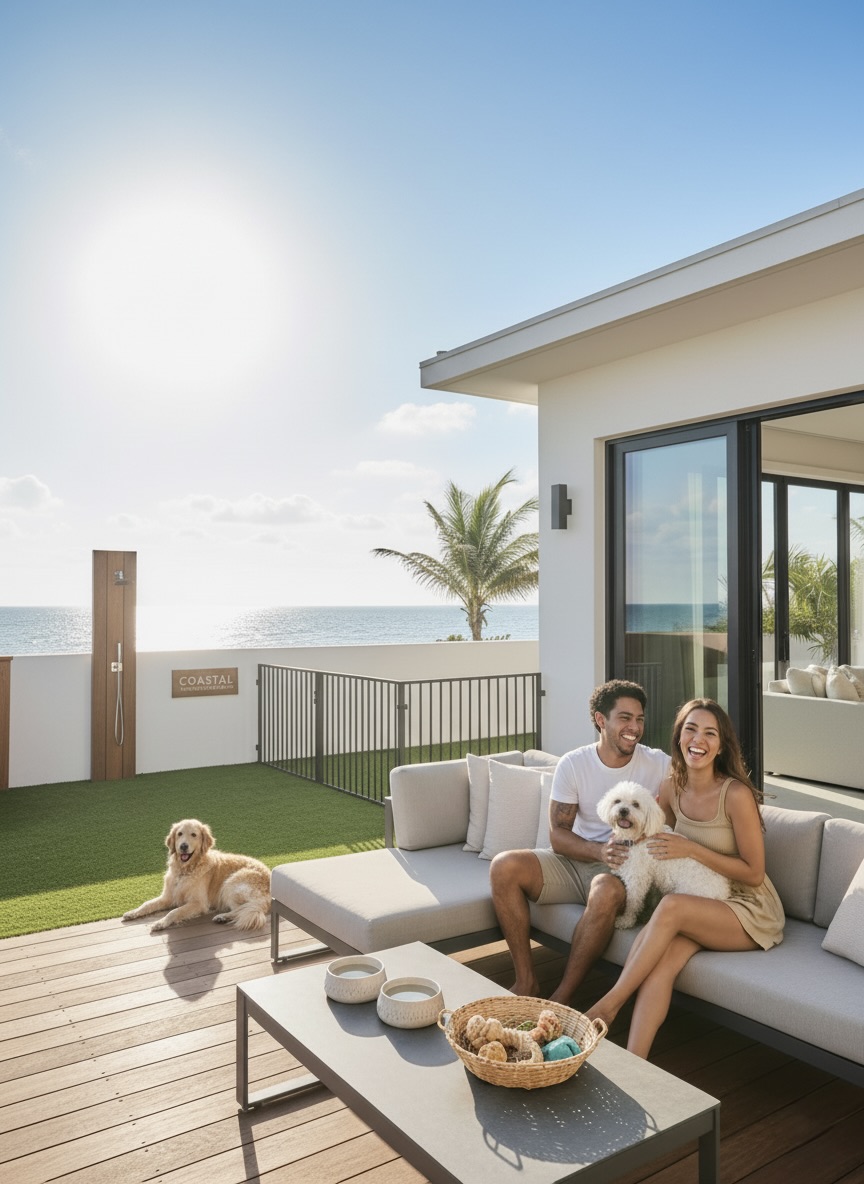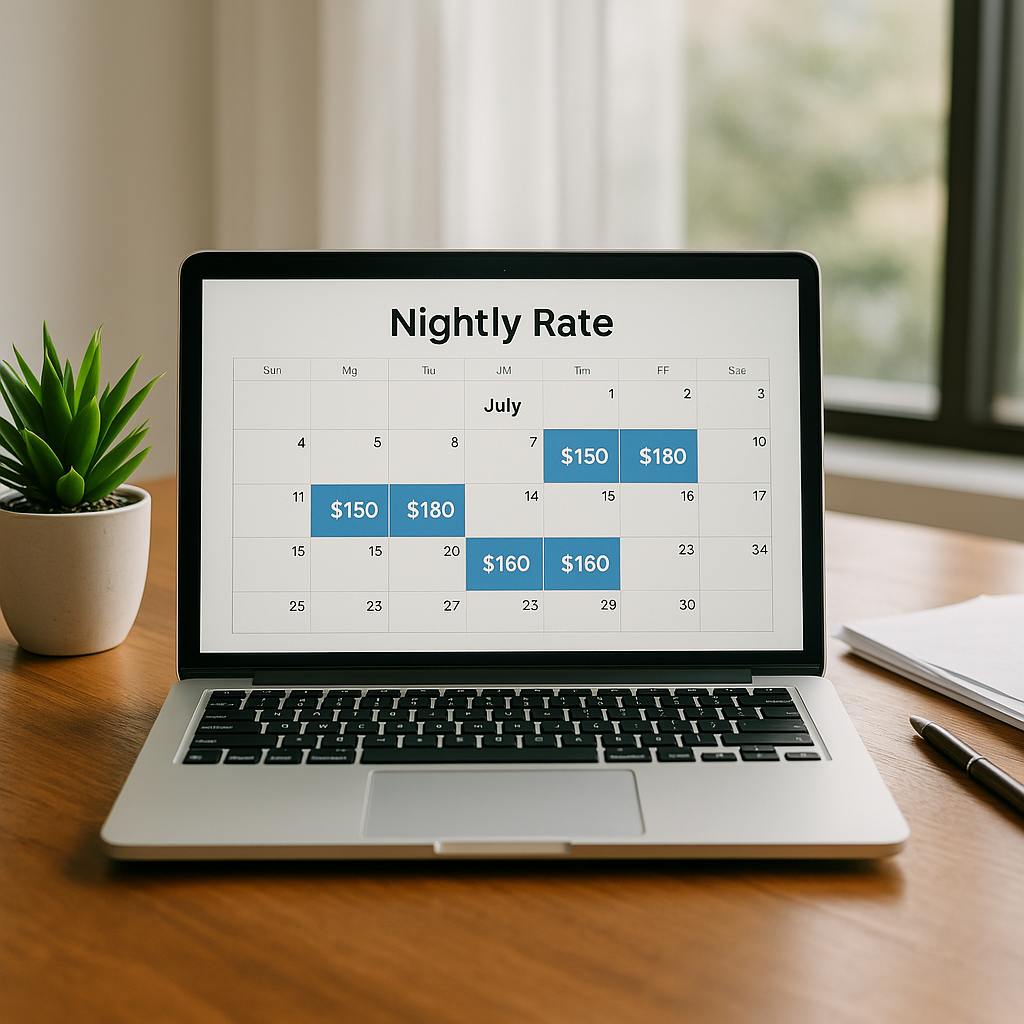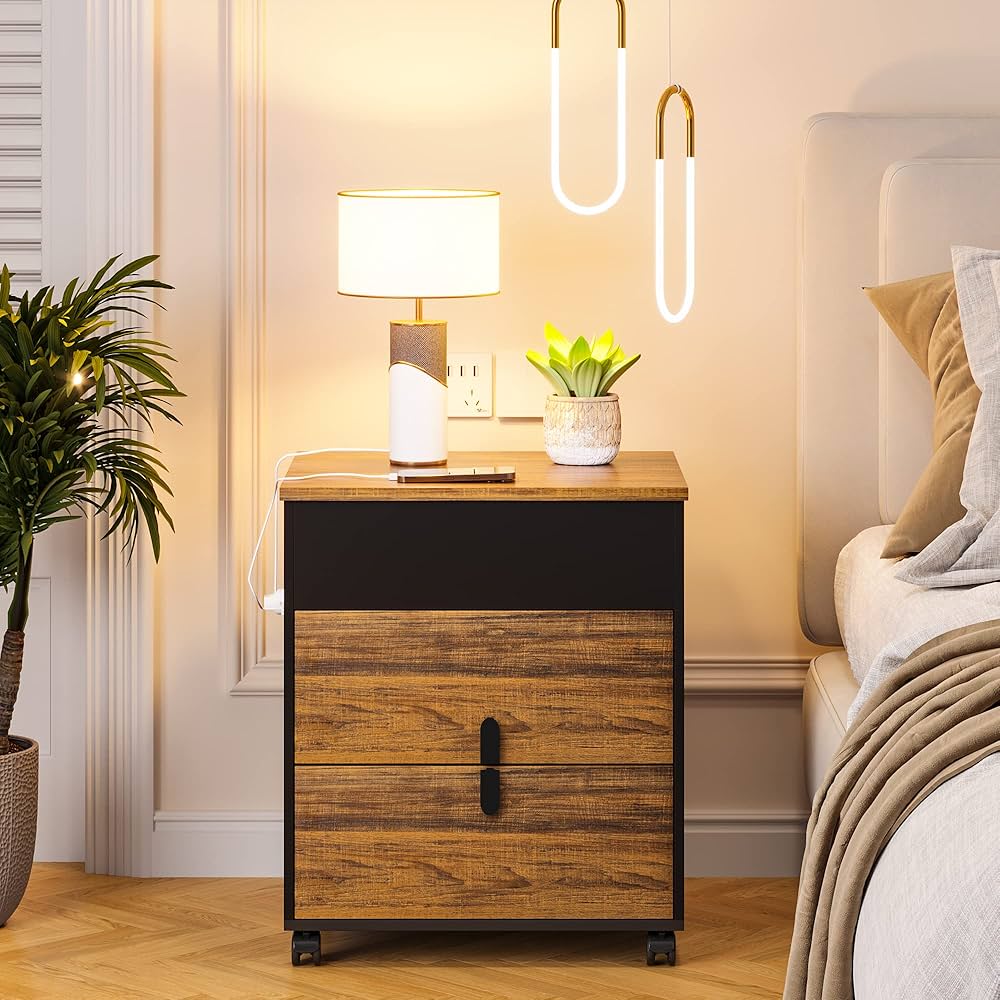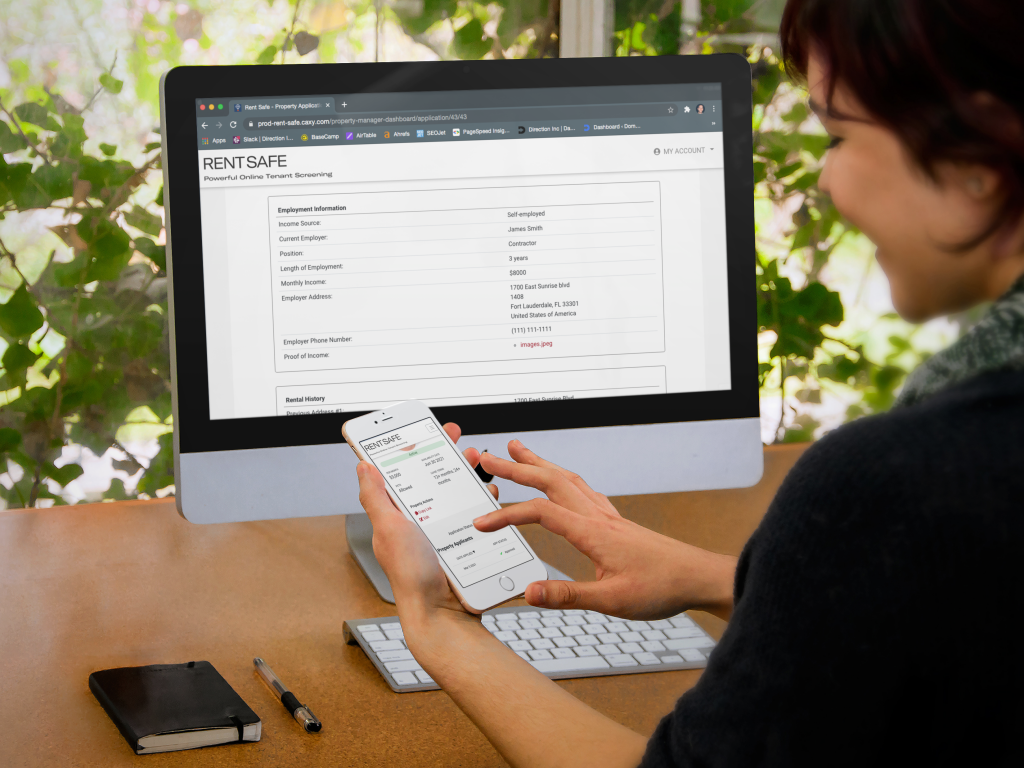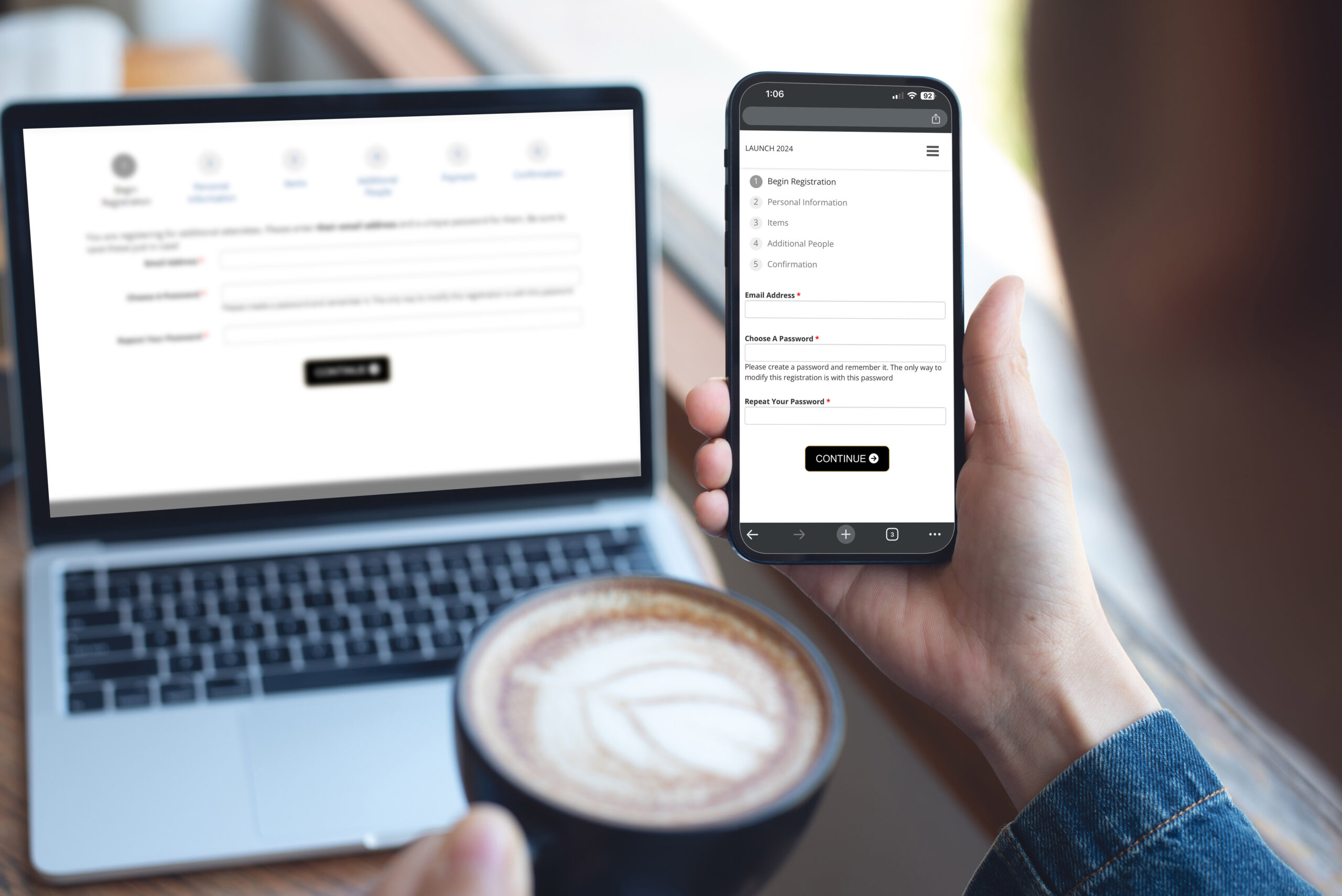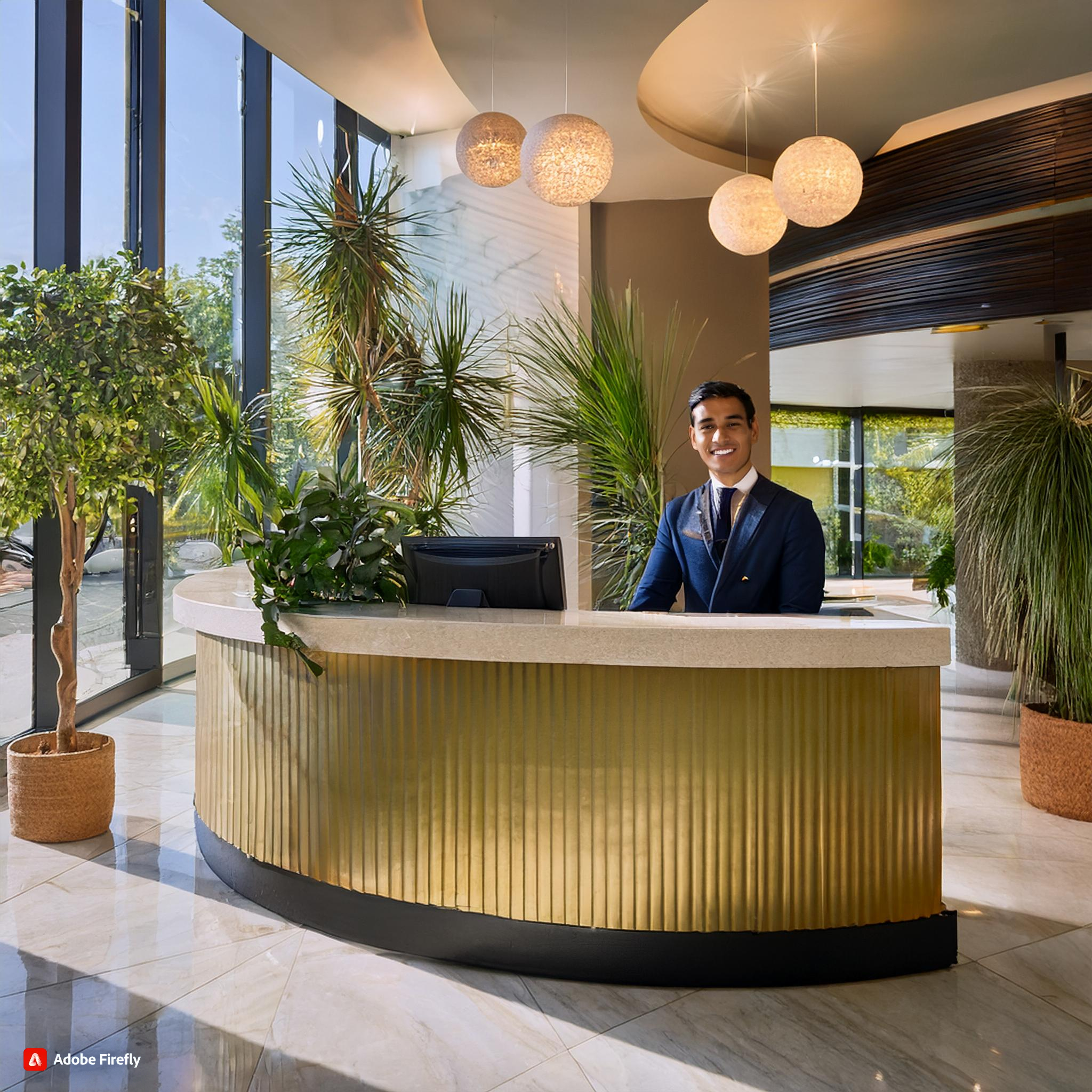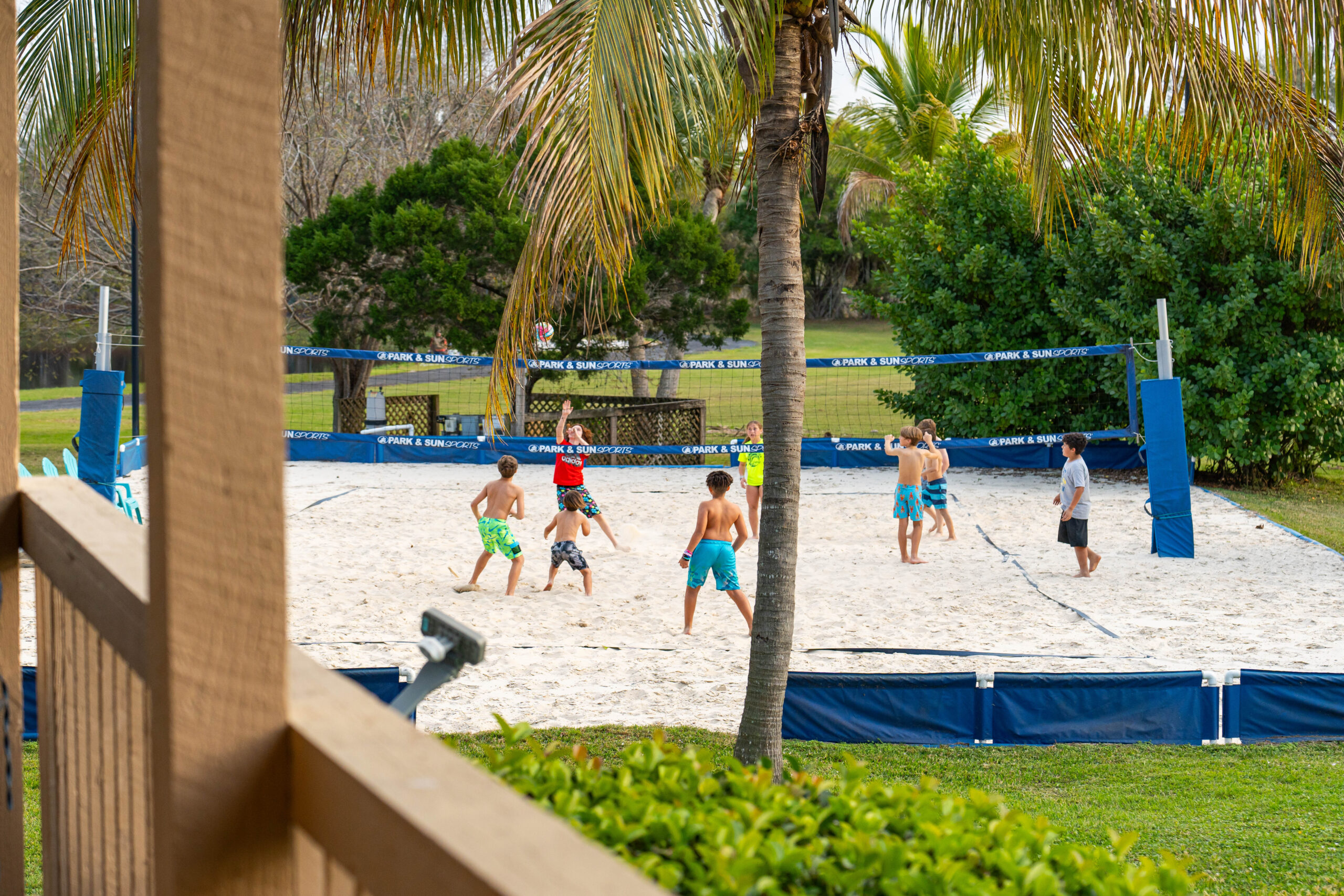Creating house rules isn’t just about avoiding noise complaints or preserving your couch. In today’s short-term rental (STR) market — especially across South Florida — well-written rules are a critical part of guest experience, property protection, and community relations.
But here’s the catch: most guests don’t read long rulebooks. That’s why STR success requires clear, guest-friendly, and enforceable house rules — delivered in a tone that earns respect, not resentment.
Whether you manage a beachfront condo in Hollywood, a townhouse in Wilton Manors, or a smart home in Miami, here’s how to make sure your rules get read — and followed.
Why House Rules Matter More Than Ever
South Florida is one of the busiest STR regions in the U.S., and with that popularity comes stricter enforcement from cities, HOAs, and platforms like Airbnb and Vrbo. For hosts, house rules serve three purposes:
- Set expectations early to avoid misunderstandings
- Support enforcement when rules are broken
- Show professionalism, which reassures guests and neighbors alike
Poorly worded or buried rules don’t help anyone. In contrast, transparent, fair, and respectful rules can improve guest satisfaction and reduce the risk of costly mistakes or fines.

What the Best House Rules Have in Common
Across STR communities and expert guides, the most effective house rules share these traits:
✅ Concise and scannable
Keep rules in bullet or numbered format, using clear, plain English. Avoid long paragraphs or legal jargon. A list of 8–10 essentials is easier to digest than a 20-point manifesto.
✅ Framed positively
Instead of leading with “No parties,” try:
“Quiet hours after 10 PM help everyone — including neighbors — enjoy their stay.”
You still communicate the rule, but through mutual benefit, not warnings.
✅ Prioritized by purpose
Don’t micromanage — focus on rules that protect:
- Property safety (e.g. no smoking indoors)
- Guest comfort (e.g. max occupancy, A/C guidelines)
- Neighbor relations (e.g. parking, quiet hours)
- Legal compliance (e.g. city ordinances, pool rules)
Skip nitpicky rules that you won’t or can’t enforce.

Core Rules Worth Including
While your home and local laws will guide specifics, here are the core rules many South Florida STRs successfully enforce:
- 🚭 No smoking indoors – include a designated outdoor area if allowed
- 🎉 No parties or unregistered guests
- 🔇 Quiet hours – typically 10 PM–8 AM
- 🐾 Pets allowed or not – clarify requirements or fees
- 👥 Maximum occupancy limits – per bedroom and local law
- 🚘 Parking rules – where, how many cars, and any permits
- 🔐 Check-in/out times – with consequences for late checkout
- 🛟 Pool safety – no unsupervised children, no glass, etc.
These should be posted clearly on the listing, reiterated in guest messages, and available on-site via welcome guides or signage.
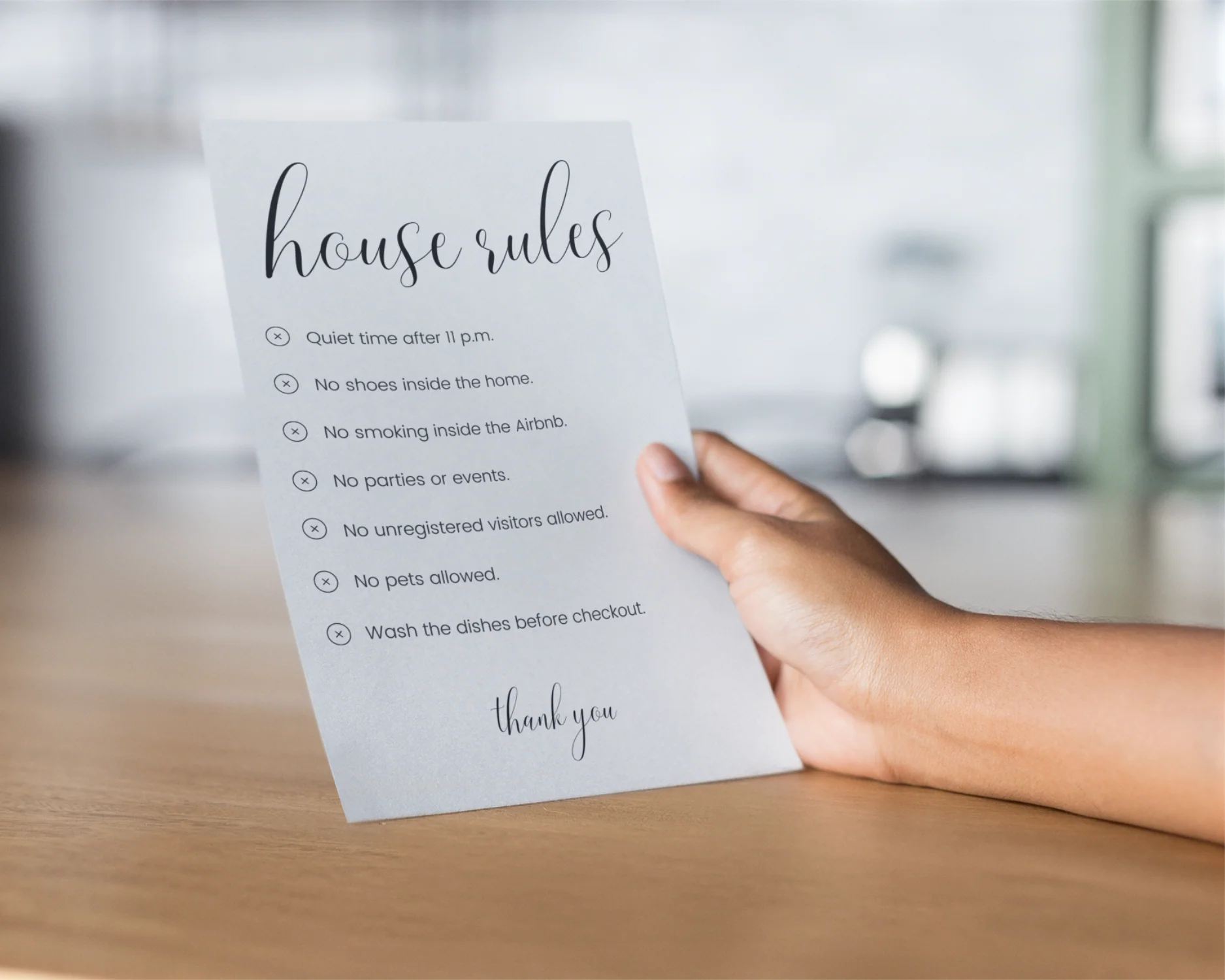
How to Get Guests to Actually Read Your Rules
📲 Present rules at key touchpoints
- Booking screen – Use platform rule fields
- Post-booking message – Send a friendly reminder
- Pre-check-in message – Include top 3–5 bullet points
- In-property signage – Discreet but visible reminders
- Checkout checklist – Include expectations like trash or linens
Guests are more likely to comply when they see rules multiple times, in multiple formats.
💬 Keep your tone friendly but firm
Avoid sounding like a disciplinarian. Lead with professional hospitality:
“To make your stay smooth, here are a few quick guidelines…”
People respect fairness and clarity more than caps-locked commands.

Platform-Specific Tips (Airbnb & Vrbo)
On Airbnb
- Guests must accept House Rules before booking
- Use the “Things to Know” section fully
- Repeat critical rules in the description and pre-stay messages
- Avoid setting extra rules after booking — they may not be enforceable
On Vrbo
- Set renter age minimums, pet policies, and guest limits
- Include a digital guide or signed agreement if preferred
- Add property-specific rules directly in messaging
Whichever platform you use, remember: what’s listed is what’s enforceable.

For Property Managers and Hosts with Multiple Listings
Managing dozens of guests a month? Automation is your ally.
- Use platforms like Hospitable or Guesty to automate pre-stay messages
- Integrate smart locks and noise monitors for real-time compliance
- Send quiet hour or check-out reminders automatically
- Log rule violations with timestamped data and photos
Don’t wait for issues — let your system catch them first.
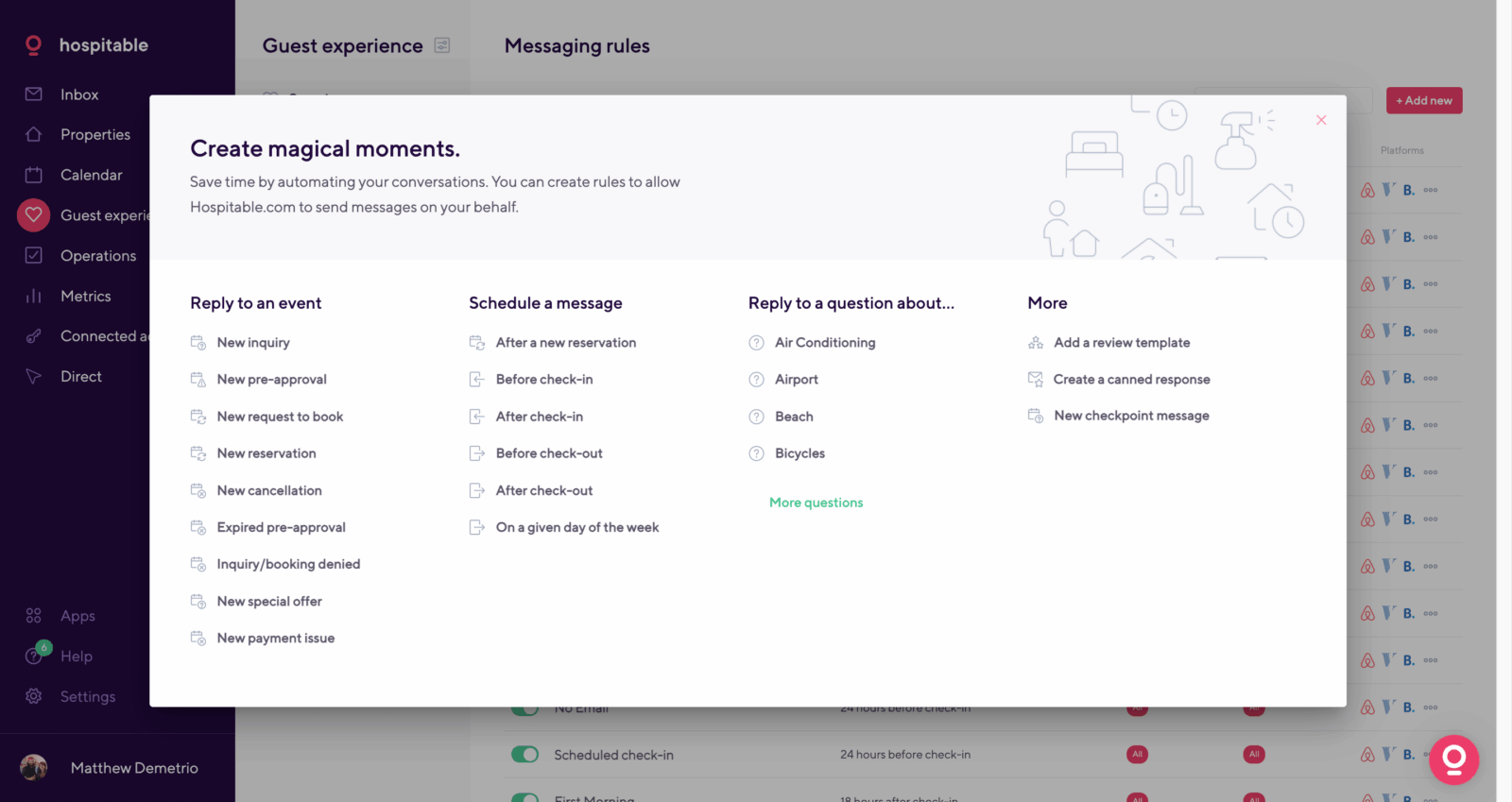
Cultural Awareness = Fewer Issues
Florida welcomes guests from all over the world. That means:
- Provide translations or visual cues when possible
- Be clear about local norms (e.g. quiet hours, recycling)
- Frame rules as community standards, not personal preferences
Guests from other regions or countries may not know what’s “normal” here. A polite explanation can go a long way.

Common Mistakes to Avoid
❌ Including rules you won’t enforce
❌ Using aggressive or patronizing tone
❌ Making rules too long, vague, or hidden
❌ Ignoring local laws or HOA guidelines
Instead, aim to be transparent, consistent, and guest-centered. Your rules should reflect not just what’s important to you — but what matters to the success of their stay.
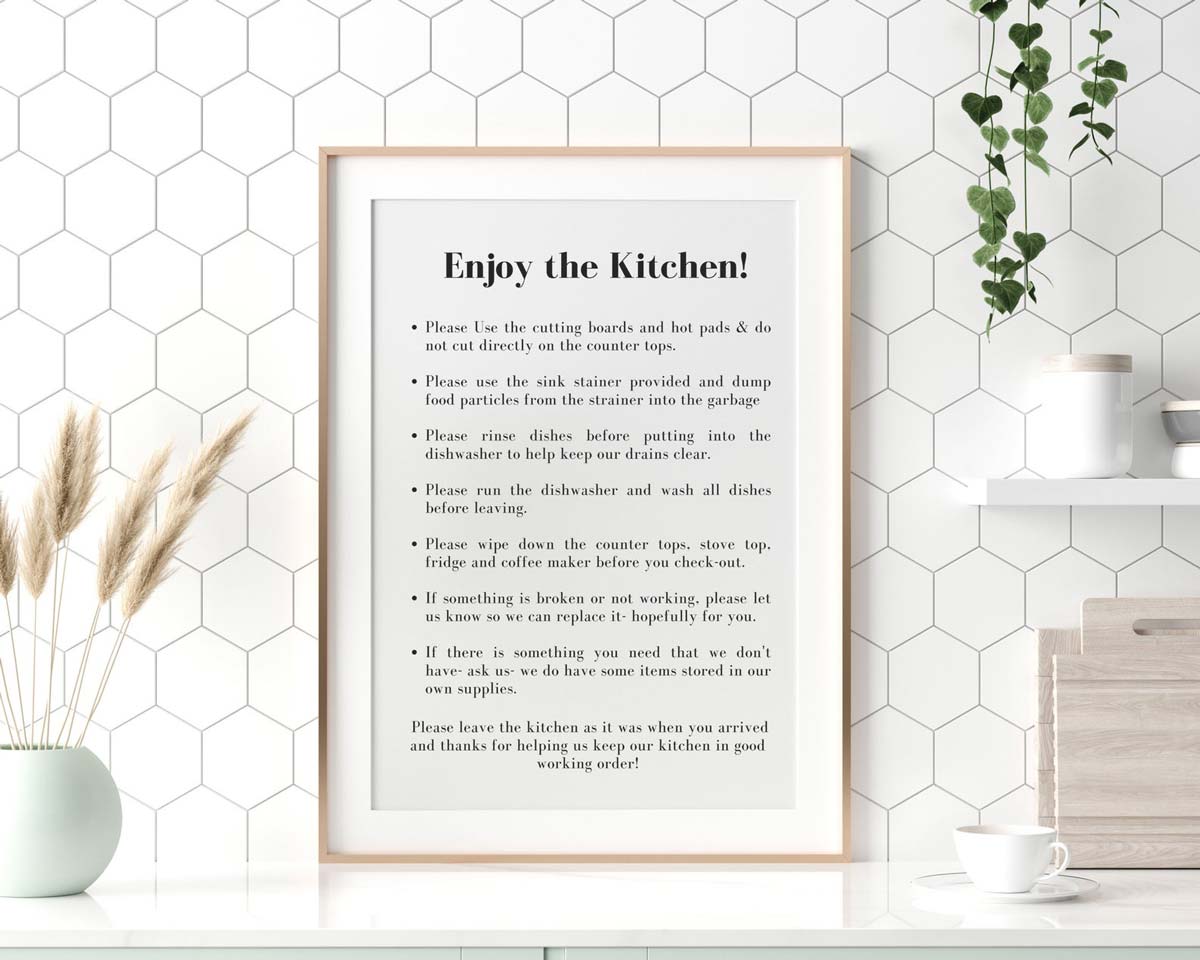
House rules don’t have to be scary, and they shouldn’t be ignored. With the right tone, tools, and timing, you can ensure your guests understand your expectations — and respect them.
Whether you manage one beachside condo or a portfolio of STRs, the goal is the same: happy guests, quiet neighbors, and a protected investment.
By writing rules that guests actually read — and communicating them with clarity — you protect your property and elevate the guest experience.













